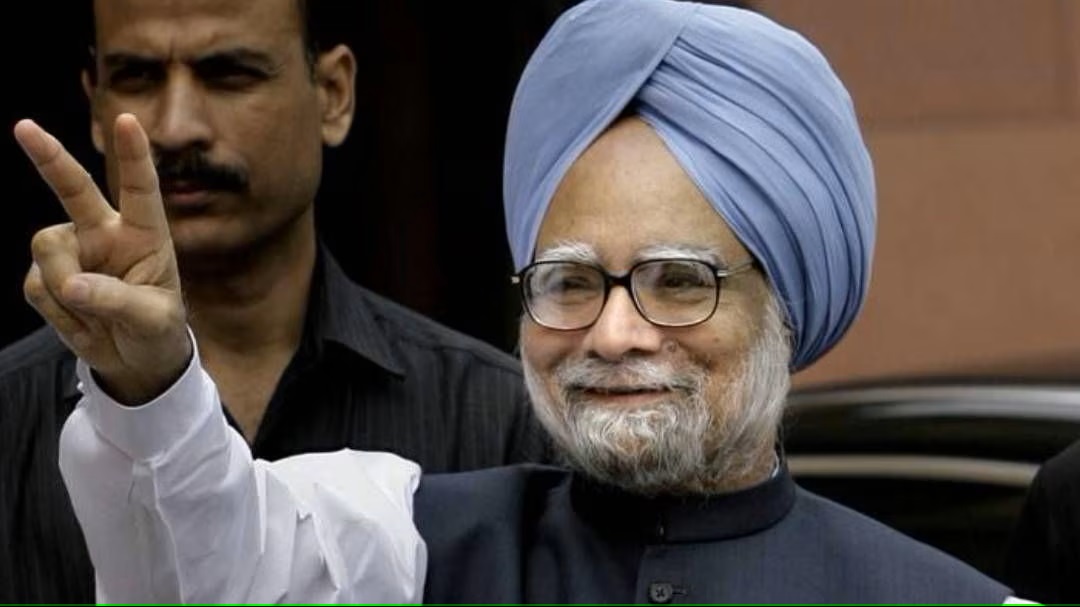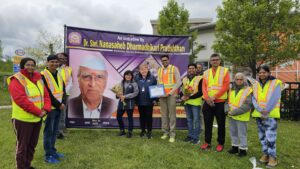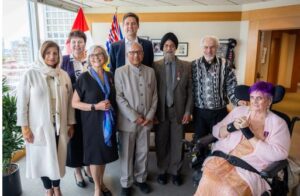 It is with profound sorrow that we mark the passing of Dr. Manmohan Singh, a distinguished leader whose transformative vision and steadfast dedication steered India through significant phases of reform and growth. Dr. Singh, who served as the Prime Minister of India from 2004 to 2014, passed away at the age of 92. As we reflect on his monumental contributions, it becomes clear that his legacy is not merely etched in the annals of political and economic history but is also deeply felt in the progressive trajectory that India continues to follow.
It is with profound sorrow that we mark the passing of Dr. Manmohan Singh, a distinguished leader whose transformative vision and steadfast dedication steered India through significant phases of reform and growth. Dr. Singh, who served as the Prime Minister of India from 2004 to 2014, passed away at the age of 92. As we reflect on his monumental contributions, it becomes clear that his legacy is not merely etched in the annals of political and economic history but is also deeply felt in the progressive trajectory that India continues to follow.
Born in Gah, now part of Pakistan, on September 26, 1932, Dr. Singh’s journey was marked by academic excellence and profound integrity. His stellar education led him from Punjab University to the prestigious universities of Cambridge and Oxford. Before stepping into the political arena, he was an accomplished economist, holding key positions such as the Chief Economic Advisor, Governor of the Reserve Bank of India, and Deputy Chairman of the Planning Commission.
 Dr. Singh’s political saga began with his pivotal role as India’s Finance Minister in 1991. Faced with an unprecedented fiscal crisis, he spearheaded liberal economic reforms that dismantled protectionist barriers, welcomed foreign investments, and rejuvenated the private sector. These reforms not only averted an economic meltdown but also laid the foundation for the nation’s rapid economic growth, heralding the rise of India as a burgeoning economic superpower.
Dr. Singh’s political saga began with his pivotal role as India’s Finance Minister in 1991. Faced with an unprecedented fiscal crisis, he spearheaded liberal economic reforms that dismantled protectionist barriers, welcomed foreign investments, and rejuvenated the private sector. These reforms not only averted an economic meltdown but also laid the foundation for the nation’s rapid economic growth, heralding the rise of India as a burgeoning economic superpower.
Ascending to the prime ministership in 2004, Dr. Singh’s tenure was distinguished by a series of landmark policies that aimed at bolstering economic growth and enhancing social welfare. One of the hallmarks of his leadership was the Indo-US Nuclear Deal in 2005, which ended India’s nuclear isolation and fostered strategic ties with the United States, enhancing energy security and international standing.
Under his guidance, India also witnessed the introduction of the Right to Information Act in 2005, a transformative piece of legislation that enhanced transparency and accountability in government. The National Rural Employment Guarantee Act (2005) was another significant achievement, providing social security to millions of rural households and empowering them through guaranteed wage employment.
Furthermore, Dr. Singh’s vision for urban renewal was embodied in the Jawaharlal Nehru National Urban Renewal Mission, which aimed at improving the quality of life in India’s burgeoning urban centers by upgrading their infrastructure. This initiative not only revitalized cities but also made them more inclusive for the urban poor.
Despite facing challenges, including allegations of corruption within the government during his second term, Dr. Singh’s personal integrity remained unblemished. He was globally lauded for his diplomatic acumen, managing complex relationships with key global players like the United States, China, and Pakistan, enhancing India’s profile on the world stage.
As Canadians and the global community reflect on his contributions, Dr. Singh’s legacy stands as a beacon of progressive governance and economic foresight. His calm demeanor and intellectual rigor were instrumental in steering India through various challenges, laying down a path of growth and modernization that continues to influence the nation’s trajectory.
In the annals of history, Dr. Manmohan Singh will be remembered not just as a prime minister but as a visionary who transformed India with grace, dedication, and an unwavering commitment to the welfare of its people









